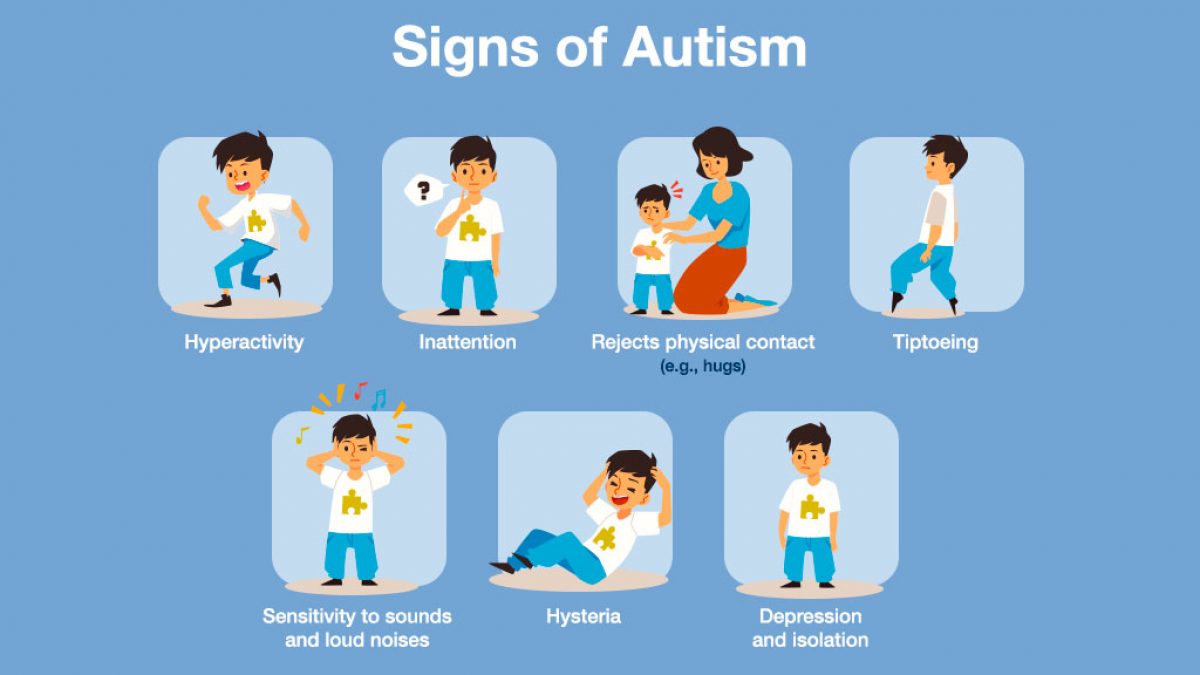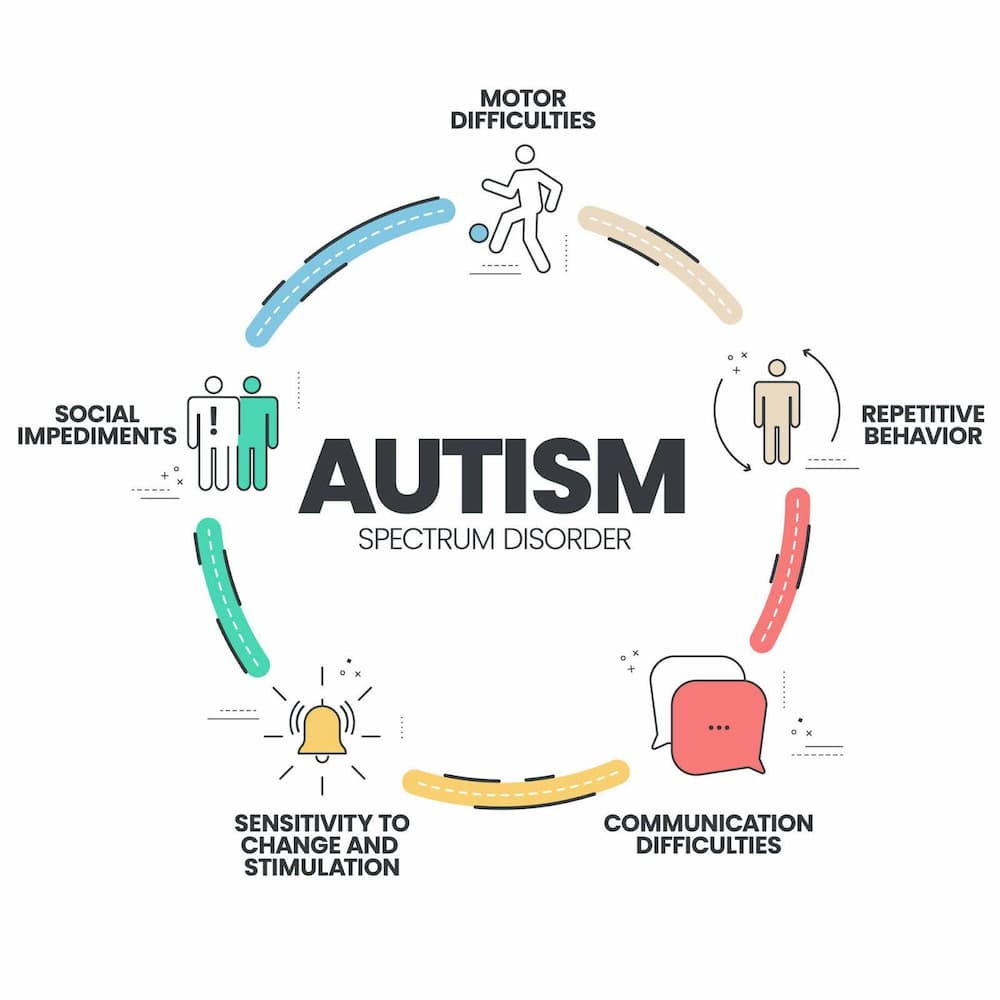Creating strong social bonds with help from an Autism Therapist
Creating strong social bonds with help from an Autism Therapist
Blog Article
Secret Indications and Signs And Symptoms to Identify in Individuals With Behavioral Autism
When you experience a person with behavior autism, identifying vital symptoms and signs is important. You may see difficulties in social interactions and communication, as well as a solid need for regimens. Additionally, sensory sensitivities can result in frustrating experiences. Recognizing these characteristics can boost your support and interventions, but there's even more to uncover about how these habits materialize in everyday scenarios. Let's discover what these indications actually appear like.
Difficulties in Social Interactions
When you engage with a person on the autism range, you might notice they have a hard time with social hints and interaction. These obstacles can make social communications feel overwhelming for them.
When they do engage, they might talk regarding their interests in great detail without seeing if you're interested. Recognizing these difficulties can help you approach interactions with compassion and persistence, promoting an extra comfortable atmosphere for both of you.
Trouble With Verbal and Non-Verbal Interaction

Non-verbal communication can be much more challenging. You could see a lack of eye call or restricted use motions, which can make communications really feel unpleasant. Facial expressions may not constantly straighten with the discussion, bring about confusion about their sensations. Identifying these indications is crucial, as it aids you much better support and engage with individuals on the autism spectrum. By recognizing their communication challenges, you can foster a lot more meaningful connections and supply a more helpful setting.
Repetitive Actions and Routines
Communication challenges commonly go along with other indicators of autism, such as recurring habits and a strong choice for routines. You could notice that individuals with autism typically take part in particular, repetitive activities, like hand-flapping, rocking, or duplicating phrases. These behaviors can provide convenience and a sense of control in a frequently frustrating globe.
When they comply with a structured schedule,Routines are equally important; numerous individuals flourish. You may find that adjustments to these regimens can bring about significant distress. If they have a daily ritual of eating morning meal at a particular time or adhering to a particular route to college, any kind of interruption can create stress and anxiety.
Recognizing these patterns assists you recognize their actions and supply assistance. By accommodating their requirement for routine and allowing repeated actions, you can create an extra comfy setting that eases their challenges.
Sensory Level Of Sensitivities

Typical Sensory Triggers
Sensory sensitivities can considerably impact daily life for individuals with autism, as certain stimulations frequently set off overwhelming reactions. Common sensory triggers consist of loud sounds, brilliant lights, and solid smells. Understanding these triggers can help you handle your setting much better.
Behavioral Feedbacks Described
Comprehending your behavior reactions to sensory sensitivities is important, as they frequently disclose just how you communicate with the world. You could observe that specific sounds, lights, or appearances bewilder you, resulting in anxiousness or pain. When confronted with these stimulations, you may withdraw, cover your ears, or perhaps react aggressively. These feedbacks aren't just quirks; they're your means of coping with overstimulation. You might likewise find on your own seeking certain sensory experiences, like deep pressure or silent atmospheres, to aid ground yourself. Recognizing these patterns assists you comprehend your requirements better and can lead how you interact them to others. By acknowledging your sensory level of sensitivities, click here for more you can work in the direction of creating a setting that feels extra comfortable and convenient for you.
Coping Strategies Introduction
Identifying your sensory level of sensitivities is simply the very first step; now it's time to explore coping strategies that can aid you take care of those experiences effectively. Beginning by developing a sensory toolkit customized to your requirements. Establishing a structured routine can also offer predictability, minimizing anxiousness around sensory overload.
Limited Rate Of Interests and Emphasis
While several individuals establish a large range of passions, Bonuses those with autism usually demonstrate restricted interests and an extreme focus on details subjects. You may discover that someone with autism can invest hours delving right into their preferred subject, whether it's a certain kind of train, a certain motion picture, or a scientific concept. This intense focus isn't simply a hobby; it can become a central component of their identity and social interactions.
You might find that discussions rotate around these interests, and they may battle to engage in broader topics. By recognizing and acknowledging these restricted rate of interests, you can cultivate a supportive atmosphere where they really feel valued and understood, enabling for even more purposeful links and interactions.
Emotional Guideline Troubles
People with autism typically encounter challenges in emotional regulation, which can be influenced by their extreme concentrate on details passions. You may discover that when an individual is deeply participated in a preferred task, they can experience solid emotions, whether excitement or aggravation. This intensity occasionally makes it tough for them to change equipments or manage their feelings when points do not go as planned.

Irregularity in Developmental Turning Points
When it comes to developmental turning points, you'll observe that individuals with autism often show a broad variety of variability. You might see a child excel in language skills yet battle with social communications.
It's important to identify that each person's trip is special. Some may establish complex skills early, just to face obstacles later on. Others may take longer to accomplish basic turning points yet then grow in details locations. Observing these patterns can aid you understand their strengths and requires better.
Often Asked Inquiries
Just How Is Autism Detected in Kid and Adults?
To detect autism in children and grownups, experts examine behavior, interaction abilities, and social communications. If an individual fulfills the standards for autism range disorder., they typically use standard tests, meetings, and monitorings to establish.
Exist Different Kinds of Autism Spectrum Disorders?
Yes, there are various kinds of autism spectrum problems, including Asperger's disorder and pervasive developmental disorder-not or else specified. Each type differs in seriousness and features, so understanding these differences can aid you better assistance people with autism.
What Therapies Work for People With Autism?
When thinking about reliable therapies for individuals with autism, you'll discover alternatives like Applied Behavior Analysis, speech treatment, and occupational therapy. Each technique can aid improve communication, social abilities, and day-to-day operating customized to specific needs.
Can Individuals With Autism Lead Independent Lives?
Yes, people with autism can lead independent lives. With the appropriate support, skills training, and resources, you can assist them establish self-sufficiency, take care of day-to-day tasks, and flourish in different settings, cultivating their freedom.
How Can Families Support Liked Ones With Autism?
You can support your liked ones with autism by developing an organized setting, urging their interests, practicing patience, fostering communication, and promoting social skills. go to my blog Celebrate their achievements, no matter how little, and develop a helpful neighborhood.
Although lots of people on the autism spectrum can understand and use language, they typically deal with substantial difficulties with both spoken and non-verbal interaction. Identifying these indicators is important, as it aids you far better support and involve with individuals on the autism spectrum. You may observe that individuals with autism typically engage in specific, repetitive activities, like hand-flapping, shaking, or repeating phrases.Sensory level of sensitivities can substantially influence day-to-day life for people with autism, as specific stimuli often cause frustrating reactions.When it comes to developmental milestones, you'll see that people with autism typically show a broad range of irregularity.
Report this page